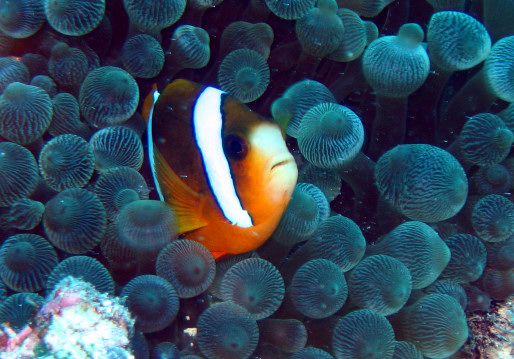











Page created by Heather C. Hopkins
Last updated 11/25/2009
Created by Heather Hopkins
Physics 212x - University of Alaska Fairbanks
Professor David Newman
11/25/2009

Photo
of
a
clown fish, courtesy of
http://www.prodive.com.au/scuba_careers.asp?nav=4&Region_ID=55&pkOfferingTypeID=26&Menu=Top_Menu&Aff_ID=
What allows divers to breathe
underwater?
If your ears hurt from pressure at the bottom of a pool, why are divers
able to go to even deeper depths below the water surface? Why do
some things float, others sink?http://www.prodive.com.au/scuba_careers.asp?nav=4&Region_ID=55&pkOfferingTypeID=26&Menu=Top_Menu&Aff_ID=
With some knowledge of physics, one can answer all of these questions. I will now explain how physics makes scuba diving possible, and why physics is integral to the following topics of scuba diving:
 Pressure
Pressure Buoyancy
Buoyancy Equipment
Equipment Dangers
Dangers These are also some of the main topics covered in a certification course. If you are interested in learning how to scuba dive, it will be necessary to know about these topics and the basic physics behind them.
Enjoy!
